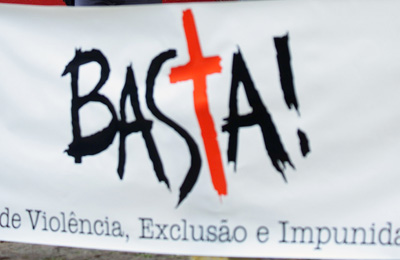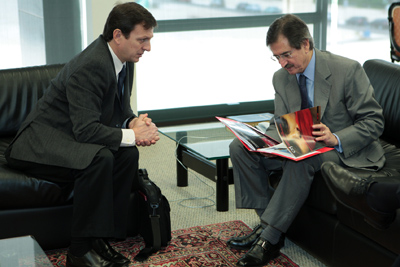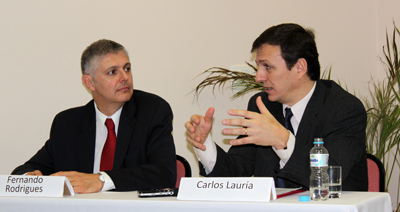
Awardees say indignation trumps intimidation
The battle for a free press sometimes feels like a war between indignation and intimidation. Journalists learn of abuses of power, crime, or corruption, and–indignant–they speak out. In response, the perpetrators of those abuses–be they government officials or criminals–try to intimidate the journalists into silence with threats, lawsuits, jail, or even murder. Last night, the…

Will UN plan address impunity, security for journalists?
Here are the facts:A journalist is killed in the line of duty somewhere around the world once every eight days.Nearly three out of four are targeted for murder. The rest are killed in the crossfire of combat, or on dangerous assignments such as street protests.Local journalists constitute the large majority of victims in all groups.The…

Bossa Nova’s home and Olympics host is risky for press
The jagged mountains ringing Rio de Janeiro descend to a temperate valley with two storied beaches on the Atlantic. Here is the city that gave the world a new, eclectic musical beat with the Bossa Nova, the South American jewel that will host the summer Olympic Games in 2016. Yet Rio has also been the…
Brazil restates commitment to press freedom, UN plan
CPJ has received an encouraging letter from Ambassador Maria Luiza Ribeiro Viotti, Brazil’s permanent representative to the United Nations, affirming the country’s support for the UNESCO-led U.N. Plan of Action for Security of Journalists and the Issue of Impunity.

Brazil, Pakistan, India fail test on journalist murders
Brazil, Pakistan, and India–three nations with high numbers of unsolved journalist murders–failed an important test last month in fighting the scourge of impunity. Delegates from the three countries took the lead in raising objections to a U.N. plan that would strengthen international efforts to combat deadly anti-press violence.

Rousseff quiet as Cuban blogger denied travel to Brazil
The response from Cuban officials did not take anyone by surprise. Prominent Cuban blogger Yoani Sánchez had been, once again, denied permission to leave her country after she was granted a visa by the Brazilian Embassy in January to attend a film festival. “I feel like a hostage kidnapped by someone who doesn’t listen nor…

Brazilian officials tell CPJ they see judicial censorship
Government officials in the administration of Brazilian President Dilma Rousseff acknowledged that judicial censorship is inhibiting the work of the local press during meetings with CPJ on Thursday and Friday. At the same time, they said that due to the separation of powers under the Brazilian constitution, there is not much they can do to…

Attacks launch: Judicial censorship strikes a chord in Brazil
During the presentation of our annual survey, Attacks on the Press, in Sao Paulo, there was clear concern about the ability of the local media to report on issues of public interest without judicial interference. Journalists for three of the largest national dailies–O Estado de Sao Paulo, Folha de Sao Paulo, and O Globo–together with…
Six stories: Online journalists killed in 2010
This week, CPJ published its year-end analysis of work-related fatalities among journalists. Six of the 42 victims worked online. While you can read the full statistics and our special report elsewhere, I want to highlight the stories of these six journalists who worked on the Web.